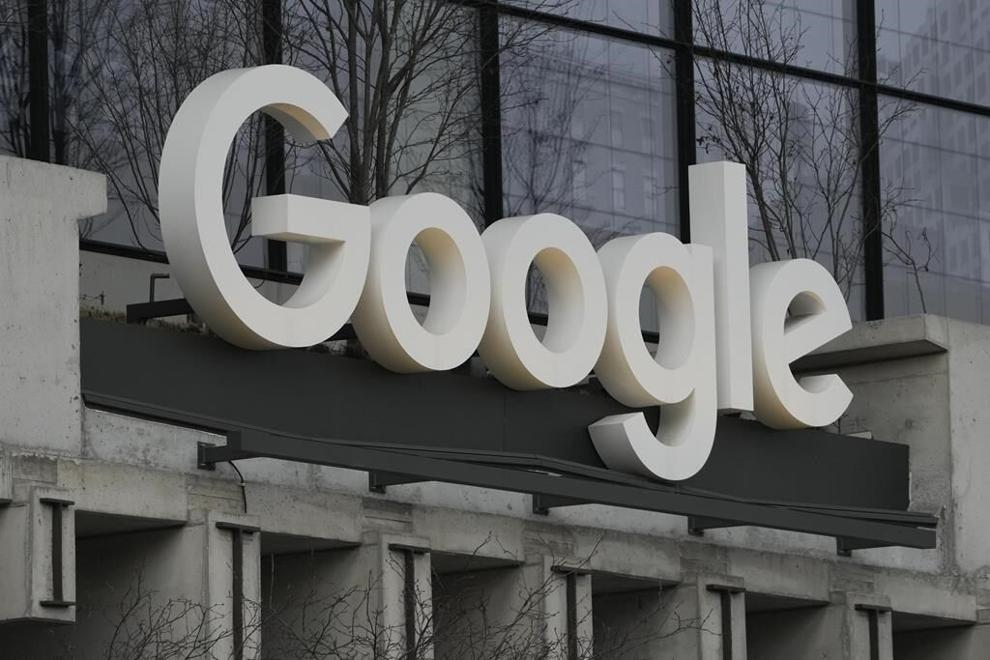
FILE - Google has agreed to purge billions of records containing personal information collected from more than 136 million people in the U.S. surfing the internet through its Chrome web browser as part of settlement in a lawsuit accusing it of illegal surveillance. (AP Photo/Seth Wenig, File)
Google has reached an agreement to delete billions of records containing personal data obtained from over 136 million individuals in the United States who use its Chrome web browser, as per court documents filed on Monday. This extensive data cleansing is part of a settlement reached in response to a lawsuit alleging Google's illegal surveillance practices.
The settlement terms were disclosed in a court filing, more than three months after Google and attorneys involved in the class-action lawsuit revealed that they had resolved a lawsuit filed in June 2020 targeting Chrome's privacy controls.
The lawsuit accused Google of monitoring the internet activity of Chrome users even when they activated the browser's "Incognito" mode, which is intended to protect users from being tracked by the company. Google vehemently contested the lawsuit, but U.S. District Judge Yvonne Gonzalez Rogers denied a motion to dismiss the case in August 2021, setting the stage for a possible trial. Subsequently, negotiations for a settlement took place over the next four months, culminating in the unveiling of the settlement terms on Monday. The settlement is still subject to approval by Judge Rogers during a hearing scheduled for July 30 in federal court in Oakland, California.
Under the terms of the settlement, Google is obligated to delete billions of personal records stored in its data centers and provide more prominent disclosures regarding the privacy implications of using Chrome's Incognito mode. Additionally, the settlement imposes other measures aimed at curbing Google's collection of personal data. Notably, the settlement does not provide compensation to the consumers represented in the class-action lawsuit.
In response to the settlement, Google issued a statement expressing its satisfaction with resolving the lawsuit, which it deemed meritless. Google clarified that it is only required to delete outdated personal technical data that was not associated with specific individuals or used for personalization purposes.
However, attorneys representing Chrome users characterized the settlement as a significant victory for personal privacy in the digital age. They estimated the settlement's value to range from $4.75 billion to $7.8 billion, based on calculations primarily derived from the potential advertising revenue generated from the personal data collected through Chrome. Importantly, the settlement does not shield Google from potential future lawsuits pertaining to similar privacy issues, allowing individual consumers to pursue damages against the company through their own civil complaints in state courts across the U.S.
Despite the substantial financial implications of the settlement, investors appeared unfazed, as evidenced by a 3% increase in Alphabet Inc.'s stock price following the announcement. Alphabet, Google's parent company, boasts a market value of $1.9 trillion, with digital advertising revenue constituting a significant portion of its annual revenue.
Legal experts view the settlement terms as a positive development that could influence the future collection of personal data online. By preventing companies from profiting off such data and mandating complex and costly data deletion efforts, the settlement may prompt changes in how online platforms handle user data.
While the settlement addresses concerns related to Google's data practices, the company continues to face legal challenges on other fronts. Notably, a federal judge is set to issue a ruling later this year in a case brought by the U.S. Justice Department, alleging Google's anti-competitive behavior in the search engine market. Additionally, potential revisions to Google's app store for Android devices may impact the company's revenue from commissions, following a previous ruling that deemed Google's monopoly over app distribution unlawful.















